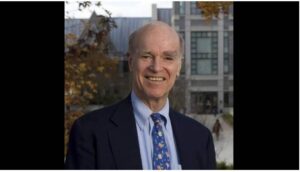
Joel Fleishman, who founded Duke University’s public policy program and dedicated over 50 years to the institution, has passed away at the age of 90. Duke announced his death in a statement on Monday, with university President Vincent Price honoring Fleishman as a “remarkable leader, person, and scholar” who significantly contributed to the university’s growth. Fleishman started his career at Duke in 1971, when then-university president and former North Carolina Governor Terry Sanford tasked him with establishing what is now known as the Sanford School of Public Policy, one of the nation’s earliest undergraduate programs in this field. Judith Kelley, the former dean of the Sanford School, expressed her sorrow, stating, “My heart weeps for the loss of Joel… I cannot imagine the world without him… Joel was a tireless advocate for those in need and an unstoppable creative force for solving problems to improve the world. He was loved by many whose lives he touched.” Fleishman directed the public policy school until 1983 but continued teaching until May of last year.
In a past interview, he articulated his vision for public policy education as fostering collaboration among intelligent individuals with diverse perspectives. While he is best known for founding the Sanford School, his former colleague Michael Schoenfeld described him as a “multifaceted diamond” with a strong commitment to his Jewish faith, a prolific writer on philanthropy, and a creator of lasting friendships around the globe, evident in his cherished annual holiday cards. Schoenfeld remarked, “There’s an old saying that rings true: everyone has a Joel Fleishman connection.” No matter where one travels—in Washington, New York, Shanghai, London, or Tulsa—there’s always someone with a story about Joel Fleishman.
Fleishman was raised in Fayetteville and retained strong connections to the area throughout his life, succeeding his father as cantor at the local Beth Israel Synagogue. He often emphasized that the essence of Judaism centers on social justice, advocating for interactions with others that align with these values. Former UNC-Chapel Hill Chancellor Holden Thorp, also from Fayetteville, described Fleishman as a local legend known for his significant contributions to the Jewish community. Over his lifetime, Fleishman earned three degrees from UNC and received an honorary degree from Thorp in 2013 for his remarkable achievements in higher education and philanthropy. Current UNC Chancellor Lee Roberts, a Duke alumnus and former educator at Sanford School, noted that Fleishman “changed many lives, including mine.” He remarked on Fleishman’s inspiring commitment to public service and how his friendship and wisdom enriched the lives of those around him, stating that Fleishman’s quiet yet effective leadership had a transformative impact on North Carolina.
For more than 50 years, Fleishman educated students in philanthropy, voluntarism, and nonprofit management at Duke while also fulfilling various administrative roles at the university. As a philanthropy scholar, he authored several books, including his latest publication from 2017, titled “Putting Wealth to Work: Philanthropy for Today or Investing for Tomorrow?” In addition to his academic pursuits, Fleishman was remembered for his passion for wine, which led him to write a monthly column for Vanity Fair for eight years. He maintained an annual holiday card list that included over 2,600 friends and acquaintances, featuring his own reflective poems about the past year. “It was unlike any other holiday card,” said Schoenfeld. “It was conversational, spiritual, meaningful, and educational. It felt like it was written just for you.” Memorial services for Fleishman took place on Tuesday at Beth El Synagogue in Durham, after which close friends and family traveled with his remains back to Fayetteville.
Thorp noted that Fleishman had profoundly impacted three key communities in North Carolina: Duke University, the University of North Carolina at Chapel Hill, and Fayetteville itself. “As a fellow citizen of Fayetteville, I am proud of all the amazing things Joel accomplished, and I believe it is fitting that his remains have returned to the Jewish section of the Fayetteville cemetery, which is the perfect conclusion to this story.”

Leave a Reply